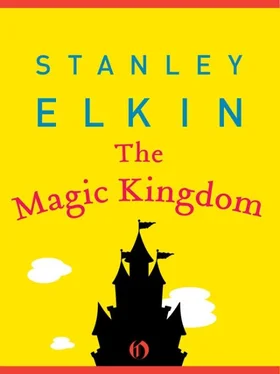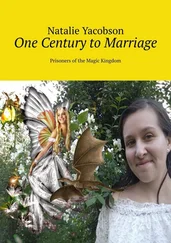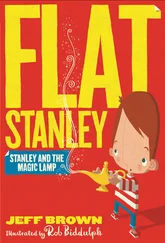“Hand them to me one at a time and tell me their relation to you.”
“That’s Danny, my grandson,” she says and shows him a color photograph of a spoiled-looking little boy playing a computer game in a finished basement in Shaker Heights, Ohio. “The little girl is Debbie, Danny’s sister.”
“I meant—” he says.
She shoves another photograph under his loupe. “That’s my son Ben. That’s his wife, Susan.” They are sitting in an open Chrysler convertible.
“Those are Ben and Susan’s twins, Sheila and Sharon. Ben and Susan can’t have children. They’re adopted.”
She shows him dozens of photos. They are all in color and have a matte finish. They are of birthday parties in paneled rec rooms. They are of affairs in hotels — weddings, bar mitzvahs — with great flower centerpieces on the tables. She identifies all the guests.
“There’s my other son, Ron. Danny and Debbie’s father.”
“I don’t see any resemblance,” Mr. Moorhead says.
“Any resemblance.”
“Between you and your grandkids. Between you and your sons.”
“They favor my husband.”
“Who resembles you?”
“Sharon does. Sheila.”
“But they’re adopted.”
She shrugs.
“Was there some medical reason — is it Ben? Ben. Ben and your daughter-in-law couldn’t have kids?”
“Ben had a vasectomy.”
“Oh,” says the physician.
“He says it’s wrong to bring your own children into this kind of world.”
She points to a photo of another son, Donald, a draper in California. Donald is also childless. “He says to me, ‘Ma, you want your grandchildren to grow up under the Shadow?’ This is what he calls it — the Shadow.”
“He means the Bomb?”
“He lives in Mill Valley. He means the San Andreas fault.”
He sees a picture wrapped in cellophane. It’s of Mack, her dead husband.
“Was it his second stroke that killed him?”
She looks frightened. “How did you know?”
“His grin doesn’t cross to the left side of his face.”
“Boy,” she said, “you know your onions.” She fingered the small, light-colored cysts on her face.
“I’d like to get your family history,” Mr. Moorhead told her. “Your parents, your grandparents, your brothers and sisters. Blood aunts and blood uncles, their children.”
She nodded.
“Are we talking about a large family?”
“Yes,” she said.
“And you people are from—?”
“Poland.”
“Much history of cancer?”
“No C-A-N-C-E-R,” she said.
“Heart disease? Stroke?”
“Counting Mack?”
“Mack was your husband,” Moorhead said. “He’s not related.”
“No,” she said.
“Diabetes?”
“No,” she said.
“There’s a high incidence of diabetes among Polish Jews.”
“Not by us,” she said.
There was no abdominal pain; there had been no cirrhosis, no anemia, no arthritis, no asthma, no back pain.
“Gallbladder? Gallstones?”
“Absolutely not.”
“Convulsions? Colon difficulties?”
“Feh!”
There’d been no pulmonary history, no pleurisy, no pneumonia.
“What about depression?”
“All in your head.”
“How about gonorrhea, how about syphilis?”
“Say,” she said, “who do you think you’re talking to?”
“Diverticulitis.”
“Knock on wood, no.”
He asked about edema. She shook her head. He asked her about gastroenteritis. She shook her head.
“Microcephaly? Hyperplasia? Hypocolemia? Hemoptysis? Syncope? Ischemia or transient ischemic attack syndrome?”
“Bite your tongue.”
Mr. Moorhead put down his pencil. “We are talking about a large family, you said.”
“Oh,” she said, “enormous.”
He picked his pencil up again. “Vascular dysfunction?”
She shook her head. As she did when he asked her if anyone in her family had ever had hemorrhoids or palpitations or varicose veins or vertigo or an infection of the urinary tract. As she did when he asked about scabies or hepatitis or lupus or Parkinson’s disease.
“Tuberculosis, poison ivy?”
“Out of the question.”
As, it turned out, it was all out of the question: hernia and obesity and rectal bleeding and hyperthyroid and blisters and osteoporosis and renal failure and senile dementia and paresis and paresthesia and effusions of the pleurae and vaginitis and thyroid. Disease itself was out of the question, and all pathologies.
But still she has her complaints. Which Moorhead, dispirited and out of touch with his own theories, who can’t even summarize them now, who can’t say why he needed photographs, the old gemütlich formal sepia poses and black-and-white candids, only halfheartedly hears.
“Well,” she says, “you’re English. Socialized medicine, the National Health. Didn’t I live after the war two years there? When my papers came through in five months? And I could have gone anywhere? The whole world to choose from? But stayed on to finish my pronunciation studies, my enunciation lessons? And don’t forget, I already knew a little English. Enough to get by. But how can a Jew get by with an accent? A yid, a mockie, a hymie, a kike. So this is my fear, doctor. What’s upsetting me so. It could come back. The accent. Sometimes I hear it. So vut if dere’s trouble? Vut den? Vut vill be? Vut den vut vill be?”
“Please,” he says. Moorhead presses her again. “Please, I beg you.”
“Nu,” she says, “he begs me. He begs me, de docteh.”
And, on the waters behind the Contemporary, Colin Bible, his spirits revitalized by prospects he has brought about himself — it’s neither immoral nor a particularly big deal for someone who negotiates with the sick, up to here in other people’s pain and disease, to seem to take on an aspect of exceptional health, this bonus of well-being, this juxtaposed by-contrast aura of splendid, shining, booming energy, his scale immortality a perk, like loose change snapped up after the show by ushers, say — toodles about Bay Lake looking for a port of call. Mary Cottle waits with the children at the marina. She gazes out as if to sea, her eyes peeled for Colin’s tiny speedboat.
“’Scuse me, if a poor death-blemished lad might ’ave a word wif da nice healfy lady.”
“I’m sorry, Benny, are you talking to me?”
“Well, only tryin’, you might say. Only makin’ the odd modest effort.” He winks at Mudd-Gaddis. He winks at Rena.
“What is it, Benny? If something’s on your mind, be good enough to say what it is, please. I’m a bit browned with your indirection. Goodness, boy, you talk just like an informer lately. You do. You really do. Like a copper’s nark. All these light kicks and promptings. I only speak like this,” she adds, “because I love you.”
“Oh, aye,” says Benny, snorting, “ browned.”
“Are you out to ruin what may turn out to be the loveliest day we’ve had here?” Mary Cottle asks, almost as if she knows what he’s talking about.
“It puts me in mind of a song, all this,” Benny says. “‘It does, Benny?’” he says. “Yar, it really do,” he answers himself. “‘Go on,’” he says, “‘sing it. Sing away, Ben boy.’” “I’ve no voice.” “‘Go on,’” he insists. “Don’t say I didn’t warn you.” “‘We want Ben-ny, we want Ben-ny,’” he chants. He cups his hands. “‘Were that the song then?’” he calls through them. “Nah,” he says, “that were just the softening him up.” “‘The song, the song,’” he demands. “Right, then,” he says, “which it goes something like this.” He looks toward Mary Cottle. “‘Ί cover the waterfront,’” he sings.
Читать дальше












